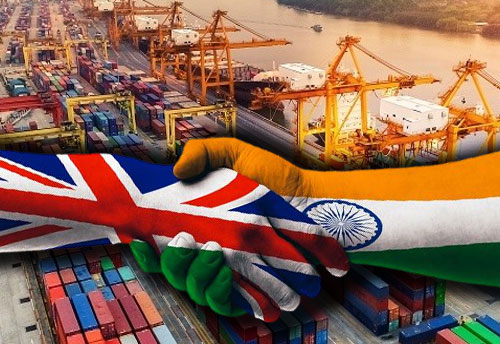As the United Kingdom and India prepare to sign a landmark free trade agreement (FTA), concerns are surfacing among Indian beverage producers, especially whisky makers, who fear the deal may disadvantage domestic brands.
With the Indian cabinet already giving its approval, Prime Minister Narendra Modi is expected to sign the agreement on July 24, during his official visit to London, where he will meet with his British counterpart, Prime Minister Keir Starmer. The agreement, officially termed a Comprehensive Economic and Trade Agreement, still requires ratification by the UK Parliament, a process that could take several months.
For Britain, this is poised to be its most consequential bilateral trade deal since exiting the European Union. UK officials estimate that the pact will inject £4.8 billion into the British economy and boost wages by £2.2 billion annually over time.
The UK is the sixth-largest investor in India, with cumulative investments reaching $36 billion. Roughly 1,000 Indian companies operate in Britain, employing over 100,000 individuals, with a collective investment of $2 billion.
Amid ongoing global uncertainty triggered by President Donald Trump’s tariff shifts, both nations are presenting this pact as a strategic economic uplift.
Once legislated, the FTA will slash or eliminate tariffs on a wide array of goods. 90% of tariffs on British exports to India, including whisky, cars, cosmetics, salmon, medical devices, and electrical machinery, will be removed or significantly reduced.
India, in return, secures zero tariffs on 99% of its tariff lines, covering nearly the entire trade value. This will benefit Indian exporters of clothing, footwear, and food products, including frozen prawns.
India also negotiated key wins on professional mobility. The agreement allows contractual suppliers and intra-corporate transferees, along with their dependents, easier access to the UK. A Double Contribution Convention (DCC) will ensure Indian workers posted in the UK for up to three years pay social security contributions in their home country instead.
The auto industry will also see some tariff cuts. India will gradually cut duties on a limited number of imported cars from 100% to 10%, while gaining access to the UK market for electric and hybrid vehicles.
In the services sector, both countries have agreed to grant national treatment, equal footing with domestic firms, in areas like telecoms, construction, and environmental services.

Indian Beverage Sector Raises Red Flag
While the UK succeeded in getting India to reduce Scotch whisky tariffs from 150% to 75%, the agreement maintains strict non-tariff standards, including the three-year maturation rule necessary for a whisky to be labeled as Scotch.
Anant S. Iyer, Director General of the Confederation of Indian Alcoholic Beverage Companies (CIABC), warned of serious consequences for Indian distillers.
“India has a tropical climate—the process of maturation is much faster. While in Scotland, the evaporation losses are around 2% a year, here it’s about 10-15% yearly, depending on where your distillery is based. So, a one-year-old mature Indian whisky could be equal to about a three-year-old Scotch whisky. This non-tariff barrier is something that’s causing us a huge setback.”
He noted that Indian producers lose nearly a third of their product over the required three-year maturation, rendering long-term production economically unfeasible.
While the FTA might offer cost benefits for India’s blended whisky segment, Iyer cautioned that it could “open the floodgates for cheaper products from a plethora of Scotch brands in the UK.”
India, the largest whisky market globally by volume, currently sees Scotch comprising just 3% of sales. Yet, with over 192 million bottles exported in 2024, India is the leading destination for Scotch, according to the Scotch Whisky Association.
Despite the progress, ambiguity remains around “rules of origin,” carbon taxes that could limit Indian metal exports, and the role of international arbitration in trade disputes.
As the final ratification approaches, Indian industries continue to monitor developments, weighing economic benefits against domestic vulnerabilities.
READ ALSO: Reset Mining Laws to Empower Local Communities – Paramount Chief



















